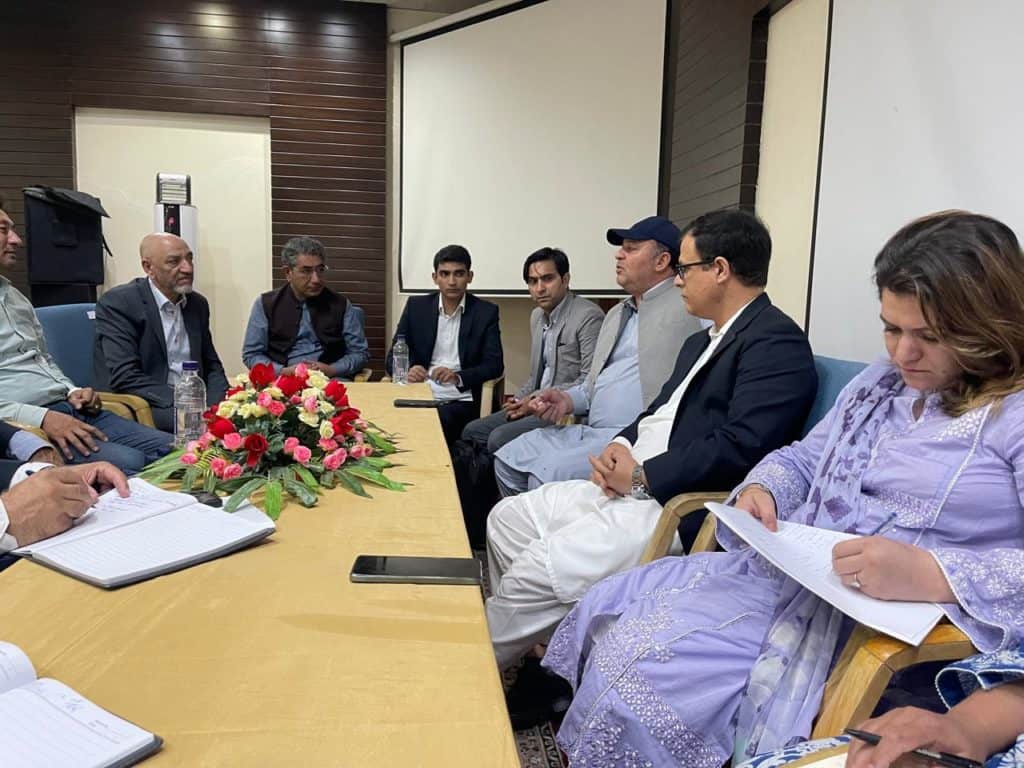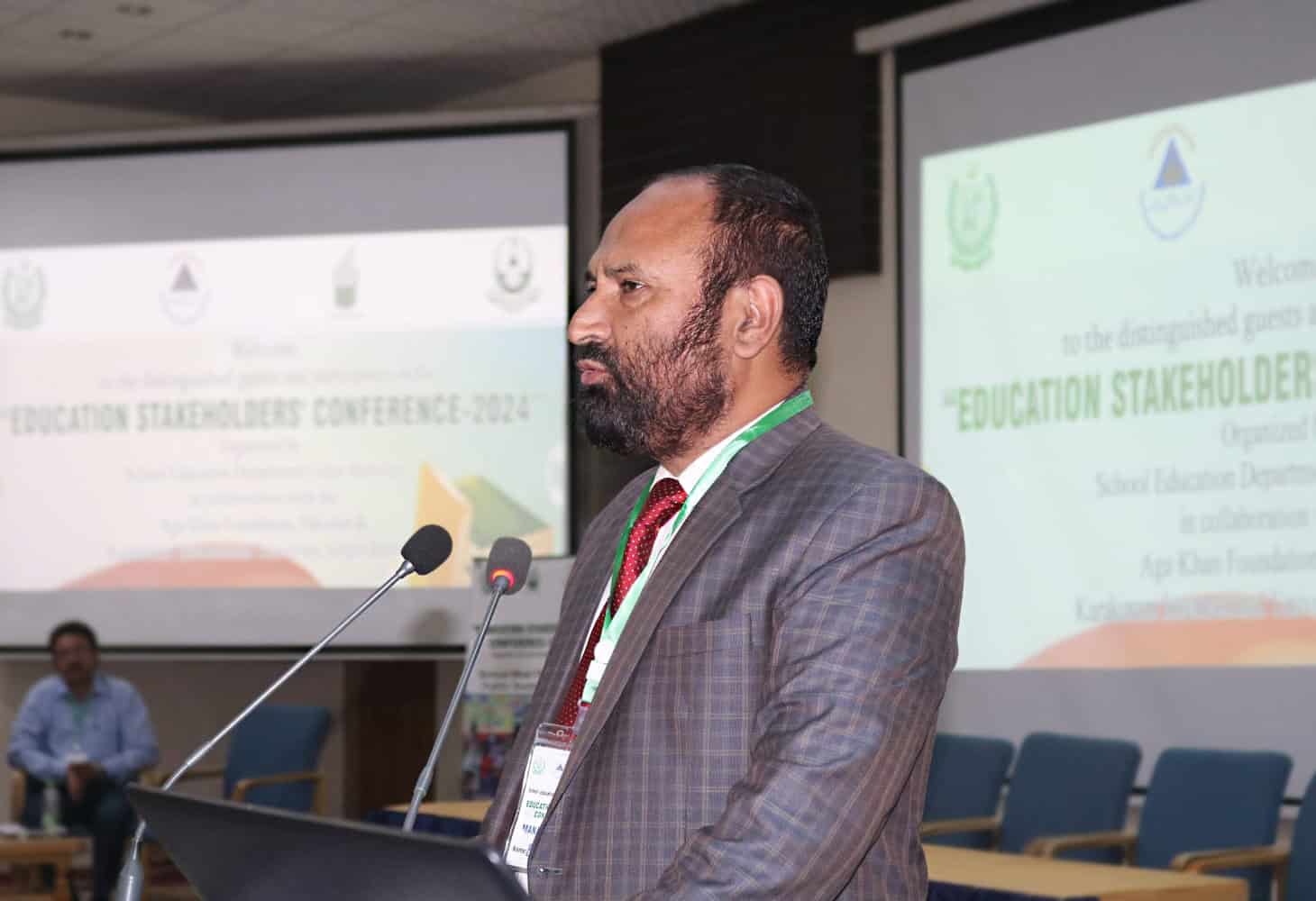On 12th September this year, the Schools2030 Pakistan team, armed with assessment data from 1052 students from participating schools, attended the ‘Educational Stakeholders Conference’ in Karakoram International University in Gilgit, Pakistan. The purpose of the event was to bring together stakeholders from across the region’s education sector, including representatives from state and private schools, researchers, development partners, government representatives and others to focus on data-driven results for what is working in terms of targeted educational outcomes.
Important government delegates, including Mr. Ghulam Shehzad Agha, Provisional Minister for Education; Mr. Ibrar Ahmad Mirza, the Chief Secretary; Mr. Akhtar Hussain Rizvi, the Secretary for Education; Mr. Faiz Ullah Khan Lone, the Director General for Schools; and the Divisional Directors of Education, were present, as well as leadership from the faculties at Karakorum International University (KIU) Gilgit and the University of Baltistan. They witnessed the team from the Aga Khan Foundation Pakistan (AKFP) present Schools2030’s Three-Step approach – Assess, Innovate, Showcase – and demonstrate how this approach is driven by data and enables teachers to design solutions to classroom problems in a responsive, inclusive and sustainable way to achieve measurable improvements in learning outcomes.
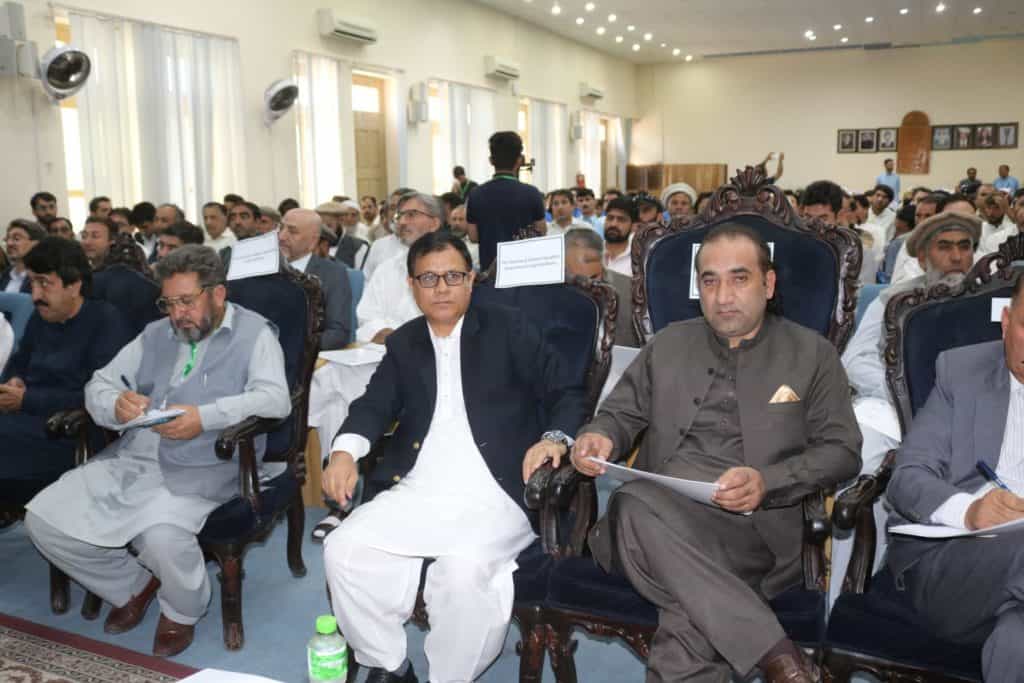
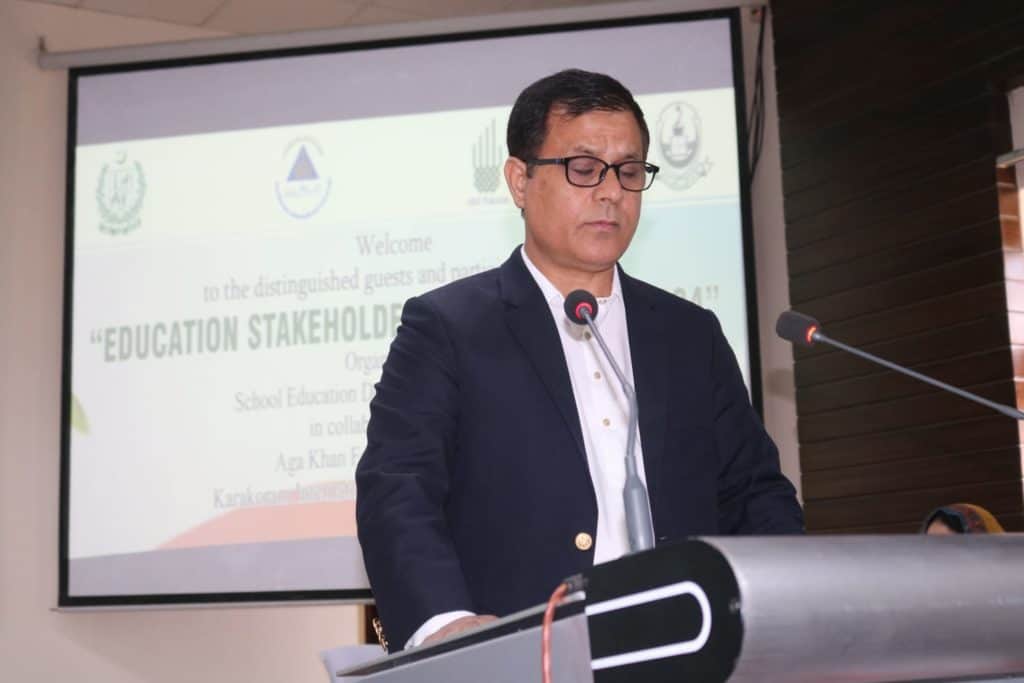
“It was a wonderful opportunity,” said Mirza Hassan, Schools2030 Programme Officer for Gilgit-Baltistan (GB). “We presented our ideas on how to enhance educational outcomes through targeted integration and data-driven insights, and we shed light on some of the interventions that we are doing as AKFP and put forward our baseline data from 1052 students from across Early Childhood Development, Primary and Secondary level. We also demonstrated the assessment and other tools we have been using, including adaptations of BEQI, IDELA and the AKF Inclusive Classroom Guide, as well as bespoke tools for measuring holistic learning outcomes. The response was amazing. They were really interested in our approach.”
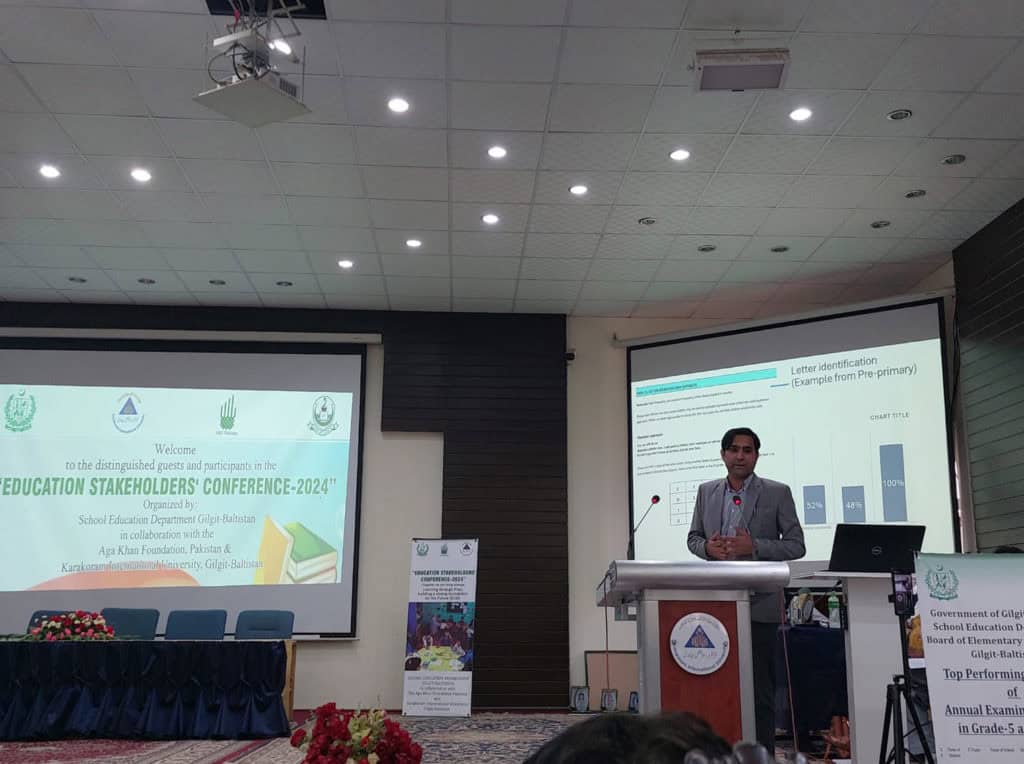
As a result of what was presented and discussed at the conference, AKFP has been asked to join a committee in GB along with several other larger and smaller foundations to drive this work forward.
It is really encouraging to see this interest from influential stakeholders in a region where geographic isolation, economic strife and poor health outcomes are all barriers to the provision of quality education for every child. Not only does it signal a sincere desire for those with power to work collaboratively to solve these complex educational challenges, but it is another step forward for the Schools2030 programme as being able to offer low-cost, actionable solutions to a range of education issues right now. We look forward to updating you on how this work unfolds in the coming months.
